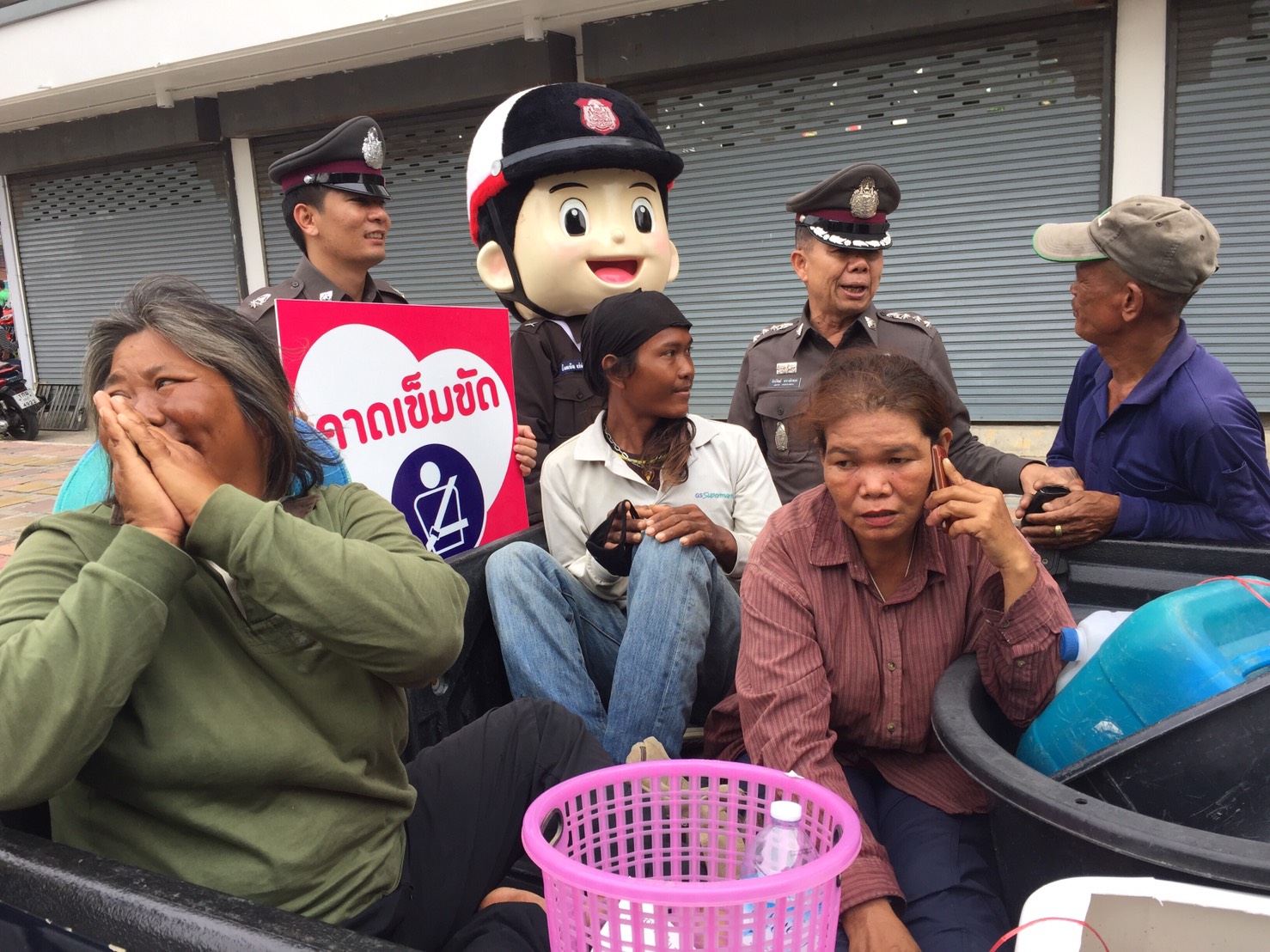After declaring that riding in cargo beds of pickup trucks was too dangerous during Songkran, the government quickly caved to public pressure and allowed the practice to continue until after the most dangerous driving days of the year.

The prohibition on passengers riding unsecured in the back of trucks was part of a series of safety measures ordered under Section 44 of the interim constitution to curb the number of road deaths during the Thai New Year. However, an immediate and overwhelming public outcry shifted the government into reverse, with police saying up to six passengers would be allowed in cargo beds.
“The prime minister doesn’t want to cause problems for people,” said assistant national police chief Pol. Lt. Gen. Wittaya Proyongphan, acknowledging complaints about people being unable to arrange alternative transport back to the provinces for Songkran. “He has ordered us to find other ways to prevent people from having accidents during Songkran.”
Those measures include strict enforcement of speed limits and seat belt use, as well as prohibitions on drunk driving.
Enforcement of the Section 44 rule requiring both non-motorcycle drivers and passengers to wear seat belts began in Pattaya April 5, but only with warnings.
Officers at the police box at South and Second roads were stopping vehicles to check for seat belts, but only warning the unbuckled to buckle up. Officers said second offenses would garner a 100-baht fine.
Fines vary on the type of vehicle and who finds the violation. For drivers of taxis and buses, the fines can be as much as 5,000 baht while passengers could end up paying 500 baht.
As for the cargo-bed rule, police said they will start to enforce it “after Songkran”, although an exact date was not announced.




